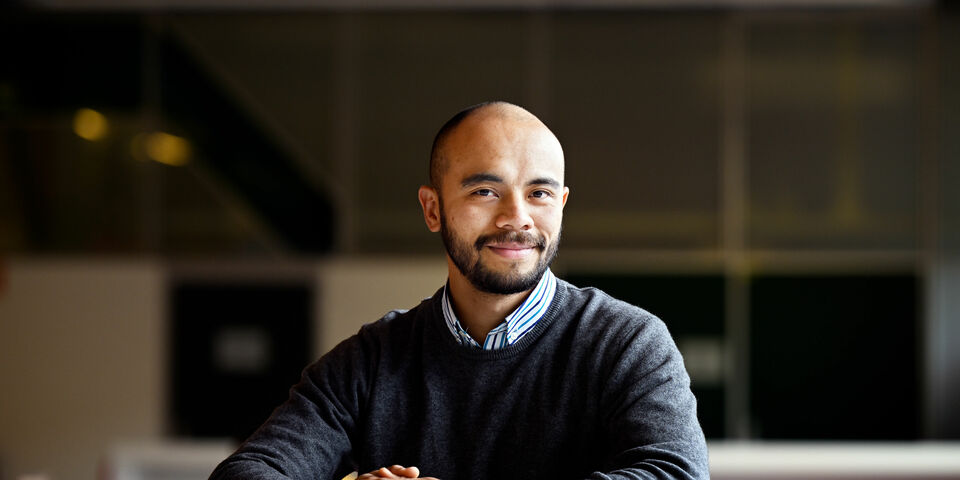Part 2 / My Story
“What to do?”, is one of my favorite questions. Actions are not blown away in the wind, as words sometimes tend to do. Here I will share a little bit of what I have done, what I do, and what I think we all should do, if we believe in democracy, justice and happiness.
I was born in Guatemala in 1993, three years before the peace accords put an 'official' end to the 36 year long war. Nevertheless, the structural conditions that led to the war in the first place have yet to be changed.
I remember being five years old and going to kindergarten, and at 7 every morning I would see kids of my age working by selling candy at the entrance. They were slightly shorter already from the malnutrition. To this day, fifty percent of children in Guatemala are malnourished, more than sixty percent of the people live in poverty, and there is no interest in changing things by those in power. Which is obvious, you don’t need highly educated people to harvest coffee, sugarcane, palm oil, the main export products.
I grew up being aware of these injustices, but I also had the luck of receiving a lot of love and compassion and had the privilege to get an education and vivid interactions with nature. This led me to believe that we should do everything we can to make life a joyful experience for everyone, because everyone is born equal, and we must pursue happiness, justice and democracy for all.
I wanted to do something and not die in the process. Energy! That was something that could make a difference in people’s lives, since roughly seventy percent of Guatemalans use firewood for cooking using low efficiency technologies. So that’s what I committed to do.
I won a full scholarship to study energy systems engineering and by the age of 21 I had co-created a non-profit organization, won the presidential medal of the environment, and won 10,000 US dollars of funding from the Inter-American Development Bank, with which I funded my bachelor’s thesis.
It led to a hydrogen stove powered with solar energy, developed in collaboration with an indigenous community which survived the genocide by hiding in the mountains and living like semi-nomads for eighteen years. The project worked (patent granted), but it was too expensive to scale it up. So I concluded the solution was in optimizing the combustion process as much as technically possible.
At the age of 24, after an internship in Chile, and having worked for one and a half year with a big law firm doing political activism in Guatemala, I decided I needed to learn more. So I came to the TU Delft with the aim of learning the fundamentals of combustion physics to solve the problem of open fires in Guatemala.
In my first quarter I successfully failed all the exams. Really, all of them. I refused to memorize exercises just ‘to pass’. I wanted to learn. In the second quarter I took all the failed exams, all the new ones and two extra. Nine exams in five days. I passed seven and I could breathe once again.
Afterwards I went on to develop an idea I had come up with during my time in the mountains with the indigenous community. It consisted in using thermometric generators to produce electricity from cookstove’s waste heat. This could also help improve the combustion process by having a fan with forced convection and bring clean light as replacement to candles.
Together with my team, we won the Dutch CleanTech Challenge, second place in the World CleanTech challenge in London, first place in the TU Delft Ideation Contest and I managed to do my thesis with Professor Dirk Roekaerts, where I created a new concept of a biomass combustion device aimed at satisfying needs for clean cooking for people living in developing countries (patent submitted). This concept was later validated in-situ in Guatemala by a good friend of mine, and now a small workshop is producing them, and we are looking into ways of scaling up. The fuel savings as of now are at around fifty percent compared to traditional stoves.
I decided that the problem of woodfire in Guatemala now had a good candidate for solving the problem. I then opened my mind to a larger problem: replace fossil fuels. This led me to start a PhD at the TU/e two days after having graduated from TU Delft. I am now working in the group of Professor Jeroen van Oijen in the creation of the Argon Power Cycle, a promising technology that could enable us to burn hydrogen without emissions, at high efficiency, making it a real candidate to replace fossil fuels.
I made the choice to present to you my case because it’s the one I know best. I acknowledge that I am privileged, as I was able to get excellent education, so I try to put my skills into that which matters. I believe that is what we all must do, especially in our times, where ecosystems are collapsing, power and wealth are undergoing extreme accumulations, undermining democracy and tending to fascism.
I believe we must work to create a world where that 11 year-old girl hears 12… knocks on the door, from her aunt coming back to give her a hug. And if creating that just and democratic world requires organizing and revolting against authority because they have partnered with the 'owners of mankind', then that's what we ought to do.





Discussie